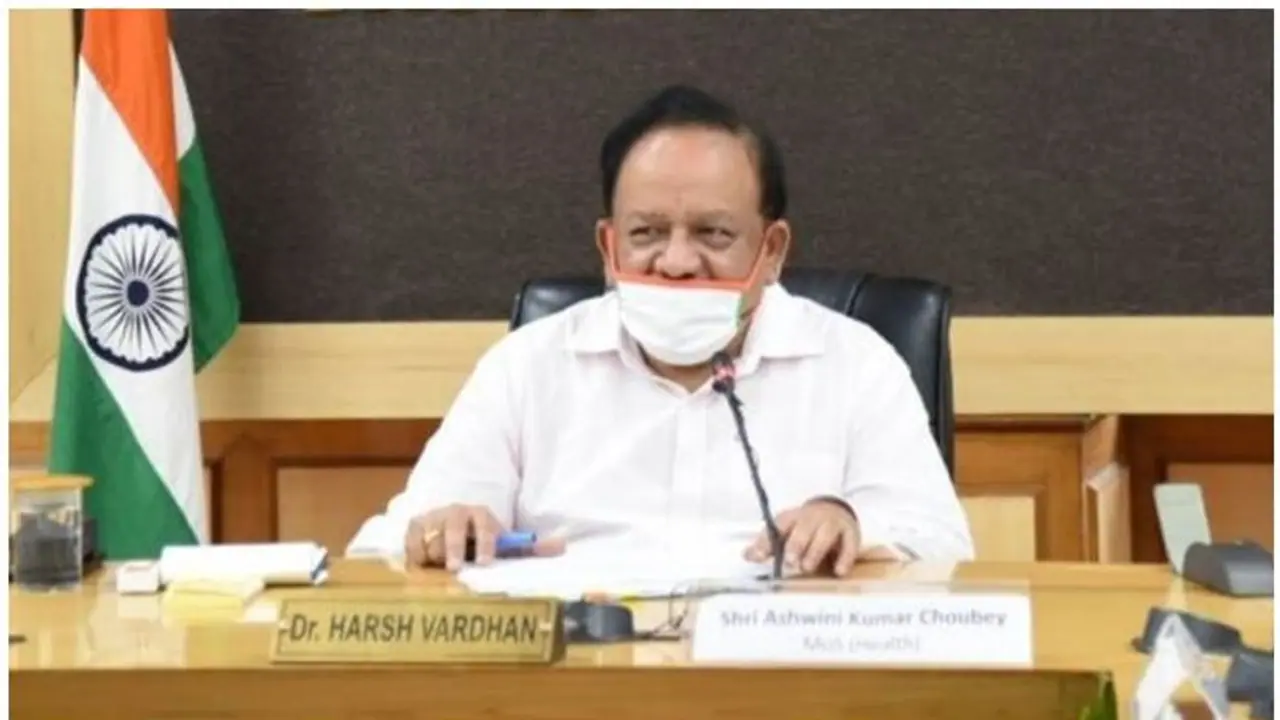Presently COVID-19 vaccines are in various stages of phases 1, 2 and 3, the results of which are awaited, Vardhan said during an interaction with his social media followers on “Sunday Samvad” platform.
New Delhi: On Sunday (October 11) Union Health Minister Harsh Vardhan said the government has not yet taken a view on granting emergency authorisation to COVID-19 vaccines in India, as and when they become available.

The minister also said that the Feluda paper strip test for SARS-CoV-2 diagnosis could be rolled out in the next few weeks.
Presently COVID-19 vaccines are in various stages of phases 1, 2 and 3, the results of which are awaited, Vardhan said during an interaction with his social media followers on “Sunday Samvad” platform.
“Adequate safety and efficacy data is required for emergency use authorisation, vaccine approval for ensuring patient safety. Further course of action will depend on the data generated,” he underlined.
Categorically denying speculation that the government is prioritizing young and working-class for the COVID-19 vaccine for economic reasons, Vardhan said, “The prioritisation of groups for COVID-19 vaccine shall be based on two key considerations — occupational hazard and risk of exposure to infection, and the risk of developing severe disease and increased mortality.”
On the issue of how the government plans to roll out the COVID-19 vaccine, he said that it is anticipated that supplies of vaccines would be available in limited quantities in the beginning.
“In a huge country like India, it is critical to prioritise vaccine delivery based on various factors such as risk of exposure, comorbidity among various population groups, the mortality rate among COVID-19 cases, and several others,” the minister said.
He also added that India is looking at the availability of several different types of vaccines, of which some may be suitable for a particular age group while others may not be.
He reiterated that the most important component of the planning is the cold chain and other logistics to ensure no glitches occur in vaccine delivery even at the last mile.
Vardhan highlighted the need for massive advocacy for building community sensitization activities to understand the reasons for vaccine hesitancy and address them appropriately.
On the rollout of the Feluda test in the near future, he said that based on tests in over 2,000 patients during the trials at the Institute of Genomics and Integrative Biology (IGIB) and testing in private labs, the test showed 96% sensitivity and 98% specificity.
This compares favourably to ICMR’s current acceptation criteria of RT-PCR Kit of at least 95% sensitivity and at least 99% specificity, he stated.
He added that the Feluda paper strip test for SARS-CoV-2 diagnosis has been developed by CSIR-IGIB and has been approved by the Drug Controller General of India for a commercial launch.
“The kit has already been validated by the Department of Atomic Energy’s National Centre for Biological Sciences, Bangalore. “While I cannot put an exact date on the availability, we should expect this test within the next few weeks,” he said.
Referring to reports of reinfection surfacing in various states, Vardhan said an analysis by the ICMR has revealed that many cases reported as COVID-19 reinfection have been misclassified because RT-PCR tests can detect dead-virus shed for prolonged periods after recovery.
“Actual reinfection would mean a fully recovered person getting infected by a freshly introduced virus in his/her body, belonging to the same or different strain. ICMR is commissioning a study to understand the true burden of re-infected cases. Results will be shared in a couple of weeks,” he said.
(With inputs from agency)
